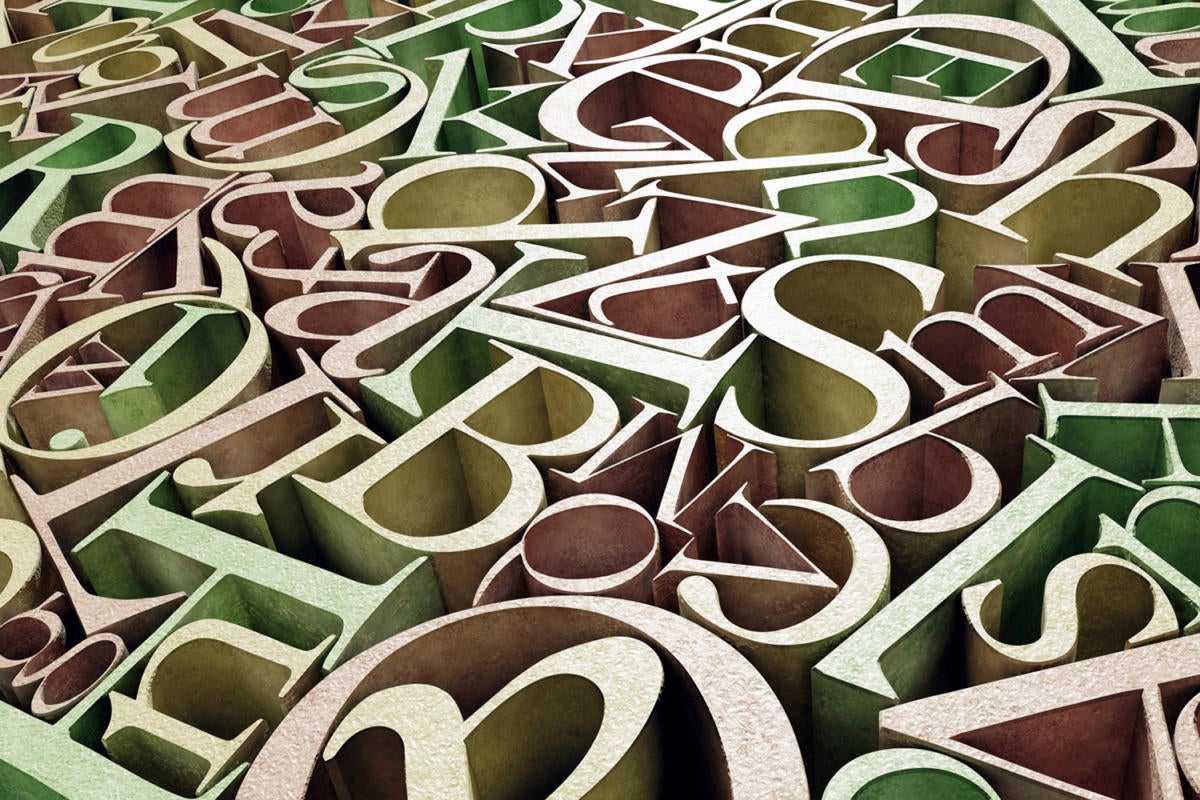- I replaced my Oura with a subscription-less smart ring - and it did some things better
- This iPhone accessory gave my standard model a Pro camera system - here's how it works
- Are CIOs buckling under the weight of expectation to deliver business value?
- 8 reasons why I use an iPad mini instead of a Kindle as my ebook reader
- 5 gadgets I never go to sleep without (and Apple Watch is not on the list)
Installing fonts on your Linux system

Linux systems generally start out with a large number of fonts available, especially once you’ve installed LibreOffice. Even so, you might find yourself craving some highly distinctive or unusual fonts to add a special tone to some of your projects. If so, you’re in luck. You’re likely to find many thousands of free fonts available online – bold, italic, calligraphy, modern, script, hand lettering, cursive, brush lettering, symbolic and more.
Here’s a small sampling of popular sites that provide free fonts for easy downloading:
- dafont.com
- fontzone.net
- fonts.google.com
- fontspace.com
You can also type “free fonts” into your favorite search engine. Expect to see a huge number of responses. Keep in mind that not all fonts are free, but plenty of free fonts are available, and they’re easy to view, download and install.
Using font-manager on Ubuntu, Mint, etc.
One handy tool for viewing the fonts that are installed on Ubuntu and related systems is font-manager. It reports the number of fonts overall, the number available on the system for everyone to use, and the number associated with the current user account in the upper left corner. Here’s an example of what you might see:
All 162 System 160 User 2
The listing above would indicate that 162 fonts are installed on the system, and that 2 have been installed by the current user and are not available to others.
Font-manager will display any font you select from the list in both a “waterfall” (increasingly larger font size) fashion and a character-by-character format depending on the tab you select. It can also be used to install fonts for you once you have downloaded the .zip file for the font.
To install font-manager, run commands like these:
$ sudo apt-get install font-manager $ which font-manager /usr/bin/font-manager
Once you have downloaded a font that you want to use from the fonts site, you should end up with a .zip file.
You can extract the font files from the downloaded .zip file yourself or get font-manager to install the font from the .zip file for you. To view downloaded font files, run commands like these:
cd ~/Downloads ls -ltr *.zip -rw-rw-r-- 1 shs shs 126279 Jul 7 16:20 baby_sweet.zip -rw-rw-r-- 1 shs shs 56538 Jul 7 16:51 christmas_flakes.zip -rw-rw-r-- 1 shs shs 65015 Jul 8 09:38 edge_of_madness.zip
In unzipping the file, you should see something like this:
$ unzip edge_of_madness.zip Archive: edge_of_madness.zip inflating: Edge Of Madness Italic.otf inflating: Edge Of Madness Italic.ttf inflating: Edge Of Madness.otf inflating: Edge Of Madness.png inflating: Edge Of Madness.ttf
Note that the Edge of Madness font includes a normal and italic version of the font. This includes the .otf (opentype font) and .ttf (truetype font) files. Some font files will also include a license or an info file.
To install from the .zip file using font-manager, just click on + (Add Fonts) sign at top of font-manager, select your Downloads folder, select the .zip file and then click on “Open” (upper right). No file extraction will be required before you do this.
Once a font has been added to your system, the number of fonts shown at the top left side of font-manager should increase by 1.
All 163 System 160 User 3
Note that both of these methods – installing fonts on the command line or using font-manager – make the new fonts immediately available to YOU. To make the new font available for anyone with an account on the system, you need to copy the .ttf files to /usr/share/fonts/truetype and the .otf files to /usr/share/fonts/opentype.
Adding fonts on Fedora
To add fonts on Fedora, download the font .zip file and extract its contents. Then create a folder in the /usr/share/fonts folder with the font’s “family name” and add the files there. For the Edge of Madness font, for example, I created a folder named “edge-of-madness” and then dropped the files into it.
$ sudo mkdir /usr/share/fonts/edge-of-madness $ unzip edge_of_madness.zip Archive: edge_of_madness.zip inflating: Edge Of Madness Italic.otf inflating: Edge Of Madness Italic.ttf inflating: Edge Of Madness.otf inflating: Edge Of Madness.png inflating: Edge Of Madness.ttf inflating: license.txt $ sudo cp Edge* /usr/share/fonts/edge-of-madness/ $ ls -l /usr/share/fonts/edge-of-madness/ total 132 -rw-r--r--. 1 root root 27656 Jul 8 10:01 'Edge Of Madness Italic.otf' -rw-r--r--. 1 root root 27656 Jul 8 10:01 'Edge Of Madness Italic.ttf' -rw-r--r--. 1 root root 26864 Jul 8 10:01 'Edge Of Madness.otf' -rw-r--r--. 1 root root 18488 Jul 8 10:01 'Edge Of Madness.png' -rw-r--r--. 1 root root 26864 Jul 8 10:01 'Edge Of Madness.ttf'
Wrap-up
Adding fonts on Linux is surprisingly easy, and the number of fonts available with very distinctive personalities is quite impressive. For people like me who enjoy playing with graphics using gimp and making political buttons, new fonts can add a lot of value.
Copyright © 2021 IDG Communications, Inc.

